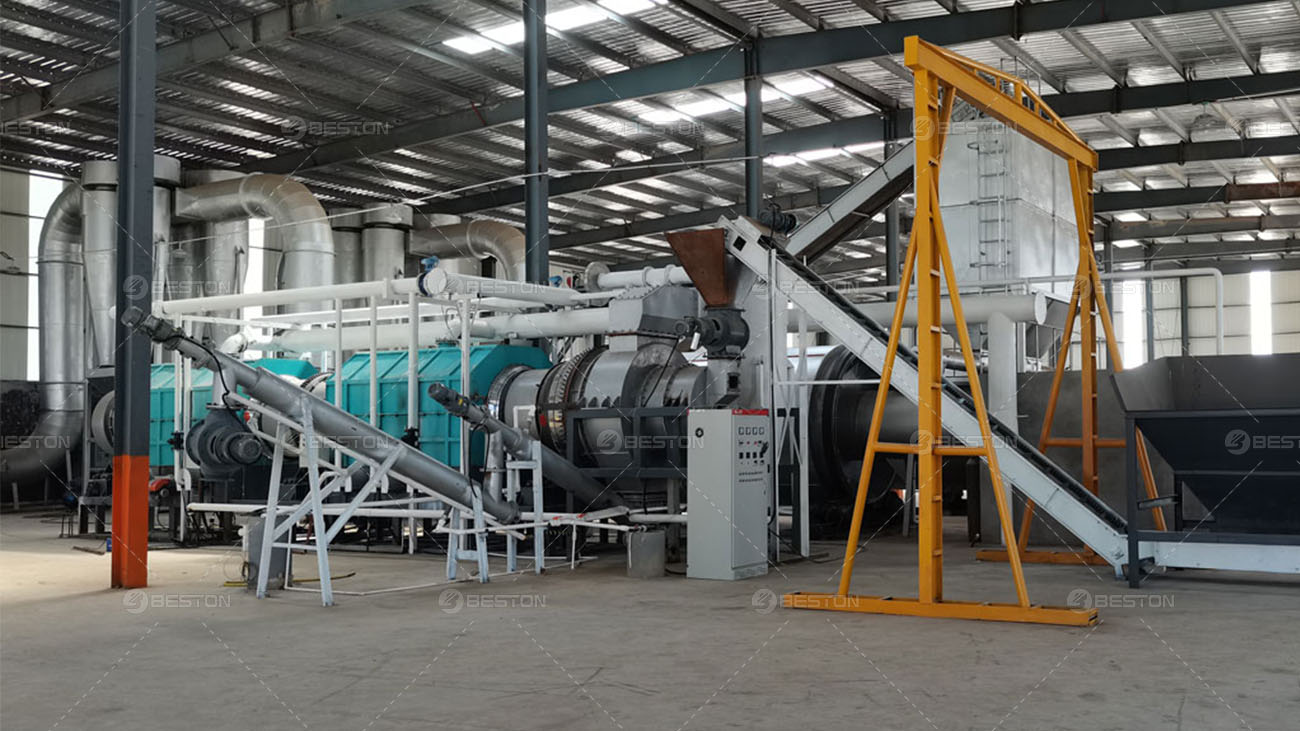Investing in biochar machines presents compelling opportunities for individuals and businesses seeking to capitalize on sustainable and innovative technologies. As the demand for environmentally friendly solutions continues to grow, the biochar industry has emerged as a promising sector with significant potential for investment returns. This article examines the investment prospects of biochar machines, highlighting key factors and considerations for potential investors.
Understanding Biochar Production and Its Importance
Biochar machines play a pivotal role in the production of biochar, a carbon-rich material derived from organic biomass through a process called pyrolysis. Pyrolysis involves heating biomass in the absence of oxygen, resulting in the decomposition of organic matter and the production of biochar, along with other byproducts such as bio-oil and syngas. Biochar is prized for its ability to improve soil health, sequester carbon, and enhance agricultural productivity, making it a valuable resource in sustainable land management practices.
1. Soil Amendment and Carbon Sequestration
Investing in biochar machine for sale offers opportunities to address pressing environmental challenges such as soil degradation and climate change. Biochar, when applied to soil, enhances soil structure, water retention, and nutrient availability, leading to increased crop yields and improved plant health. Furthermore, biochar acts as a long-term carbon sink, sequestering carbon dioxide from the atmosphere and mitigating the impacts of greenhouse gas emissions.
2. Renewable Energy Production
Beyond soil amendment, biochar machines contribute to renewable energy production by converting biomass residues into biochar and bioenergy. The biochar production process generates heat and syngas, which can be captured and utilized for heat and power generation. This not only reduces reliance on fossil fuels but also provides an alternative source of clean energy, contributing to energy security and sustainability.
3. Waste Management Solutions
Investments in biochar machines support waste management efforts by transforming organic waste materials into valuable products. Biomass residues such as agricultural waste, forestry residues, and organic municipal solid waste can be processed using biochar machines, reducing waste disposal costs and environmental pollution. By converting waste into biochar, these machines offer a circular economy solution that maximizes resource utilization and minimizes environmental impact.

Factors Influencing Investment Prospects
Several factors influence the investment prospects of biochar machines, shaping the potential returns and risks associated with investing in this technology. These factors include:
1. Market Demand and Trends
The demand for biochar and related products is influenced by factors such as agricultural practices, environmental regulations, and consumer preferences. Monitoring market trends and assessing demand drivers is essential for gauging the potential profitability of biochar machine investments. Additionally, market dynamics such as pricing, competition, and market saturation impact investment viability.
2. Technology and Innovation
Advancements in biochar machine technology and process optimization contribute to improved efficiency, product quality, and cost-effectiveness. Investing in state-of-the-art biochar machines equipped with advanced features and automation capabilities enhances competitiveness and profitability. Furthermore, research and development initiatives that drive innovation in biochar production methods and applications create opportunities for investment in cutting-edge technologies.
3. Regulatory Environment
Regulatory frameworks governing biochar production, land management practices, and carbon offset markets influence investment prospects in the biochar industry. Understanding regulatory requirements, compliance obligations, and incentives such as carbon credits is crucial for assessing investment risks and opportunities. Moreover, changes in environmental policies and government initiatives can impact the economic viability of biochar machine investments.
4. Feedstock Availability and Sourcing
The availability and cost of biomass feedstock are critical considerations for biochar machine investments. Access to abundant and low-cost biomass residues ensures consistent production and competitive pricing of biochar products. Evaluating feedstock availability, sourcing strategies, and supply chain logistics is essential for mitigating risks associated with feedstock variability and price fluctuations.
5. Economic Viability and Financial Analysis
Conducting thorough economic and financial analysis is imperative for evaluating the investment viability of biochar machines. Assessing factors such as capital investment, operating costs, revenue projections, and return on investment enables investors to make informed decisions and mitigate financial risks. Additionally, exploring financing options, incentives, and funding mechanisms can enhance the affordability and attractiveness of biochar machine investments.
Conclusion
In conclusion, biochar machines offer promising investment prospects for individuals and organizations interested in sustainable technology solutions and environmental stewardship. By addressing critical issues such as soil degradation, climate change, and waste management, biochar production presents opportunities for economic growth, environmental conservation, and social impact. Understanding the factors influencing investment prospects, conducting thorough due diligence, and leveraging innovative technologies are essential for maximizing returns and realizing the potential of biochar machine investments.


Comments
No comments yet. Be the first to react!